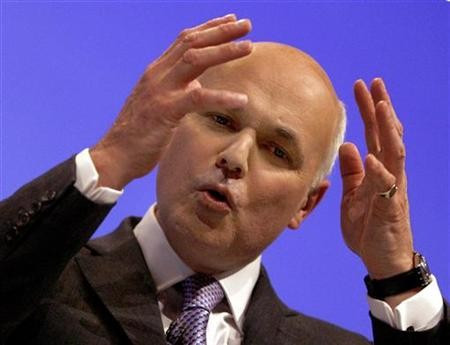Ministers to Clip Benefits of Striking Low-Paid Workers

Low-paid workers will not be eligible top up their income by the state if they take part in industrial action, according to a new system that is going to replace the existing benefit system.
As part of the new Universal Credit, a single payment system, workers may not be eligible for their wages topped up by the state under the current Working Tax Credit (WTC).
The new system is to take effect from October 2013 and is meant to rationalise the current benefits under Jobseekers' Allowance and WTC.
Presently workers who earn up to £13,000 a year can claim tax credits to top up their income even if they participate in industrial action. They are entitled to claim up to first ten days of credit.
The new system is expected to save thousands of pounds of taxpayers' money, at the same likely to provoke strong response from the union and the Labour.
The Work and Pensions Secretary Iain Duncan Smith is of the opinion that current benefit system compensates workers and tops up their income when they go on strike is "unfair and creates perverse incentives".
"It is totally wrong that the current benefit system compensates workers and tops up their income when they go on strike," the Daily Mail quoted Duncan Smith as saying.
"This is unfair to taxpayers and creates perverse incentives. Striking is a choice and, in future, benefit claimants will have to pay the price for that choice," he added.
Under the new Universal Credit system, the Department for Work and Pensions (DWP) would be able to track the strikers with the help of the latest information from HM Revenue & Customs.
"That will allow us to make adjustments and stop Working Tax Credits topping-up strikers' pay. Universal Credit is designed to mirror the world of work which includes people forgoing pay when on strike," the Daily Mail reported quoting a source in the DWP.
© Copyright IBTimes 2025. All rights reserved.





















